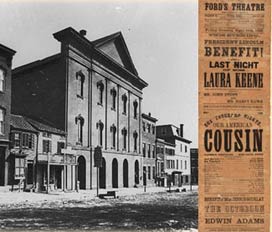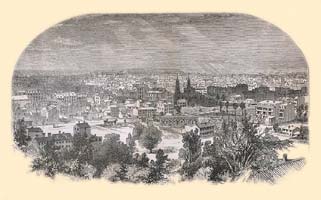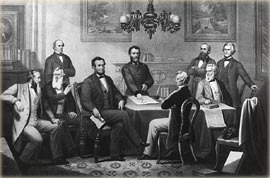

Actress Laura Keene was starring in the comedy Our American Cousin. Mr. Ford placed an ad in the paper:
The Civil War had ended just five days earlier.
The city of Washington celebrated on Thursday April 13, 1865 with a holiday for workers, parades, and marching bands. Candles were in short supply after a grand illumination lit nearly every window in the capital. The Lincolns took a carriage ride to see the lights, as did Julia Shepherd, a young tourist who later wrote to her father:

Bird's-eye view of Washington, D.C. in the 1860s. From John B. Ellis' The Sights and Secrets of the National Capital, 1869 (ICHi-30937).
Secretary of the Navy Gideon Welles recorded Lincoln's sentiments towards the defeated Confederates on his last day in office:
I hope there will be no persecution, no bloody work after the war is over. No one need expect me to take part in hanging or killing those men, even the worse of them. Frighten them out of the country, open the gates, let down the bars, scare them off, enough lives have been sacrificed. We must extinguish our resentment if we expect harmony and union. (RECK, Abraham Lincoln 37)

